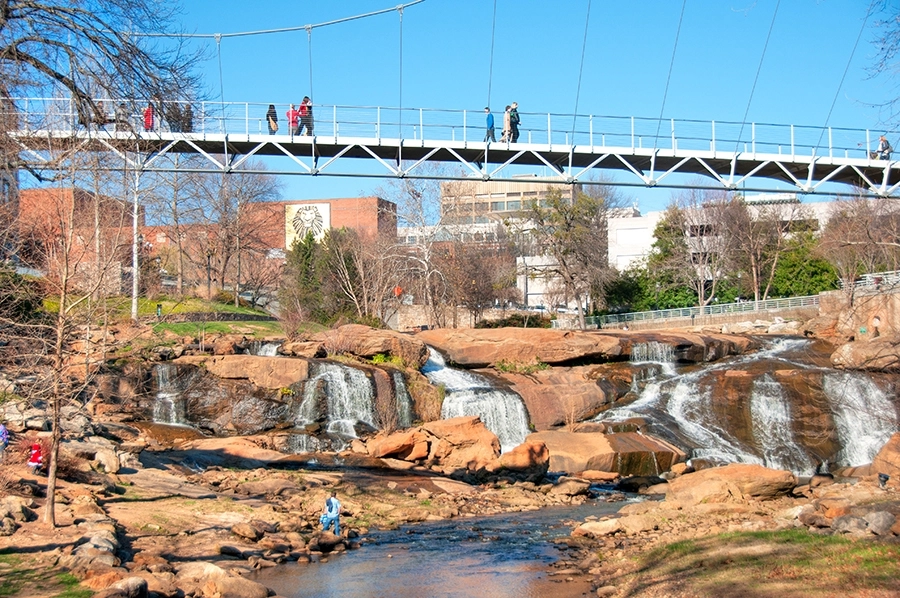Federal Funding For Trails
Photo courtesy Getty Images
Current Funding Opportunities | Funding Programs | Resources
Now is the Time to Fight for Federal Active Transportation Programs
Right now, there is serious concern about the future of federal programs that fund America’s trails and active transportation infrastructure. Against a backdrop of rising safety concerns—20 people die while walking in America every day—and significant unmet demand for investment—federal active transportation programs like Transportation Alternatives are oversubscribed by a ratio of 4 to 1—there are vocal attacks on these vital funding programs.
Read and amplify the letter that RTC submitted to Congress on behalf of more than 1,100 organizations, businesses and elected officials from all 50 states representing millions of Americans.
Funding News & Opportunities
BUILD NOFO Open
The full FY 2026 Notice of Funding Opportunity (NOFO) for the Better Utilizing Investments to Leverage Development (BUILD) Grant Program (formerly RAISE) has been released and includes eligibility guidance for applicants. While bicycle and pedestrian infrastructure is still eligible for funding, there is a decreased focus on bike/ped safety and connectivity elements compared to prior years. You can find the full NOFO here. Applications are due February 24, 2026, and awards are expected to be announced on June 28, 2026.
Below are a few important changes to note:
- Priority will be given for projects that can begin construction in 18 months.
- Priority merit criteria: safety, quality of life, mobility and community connectivity, and economic competitiveness.
- There will be one round of project selections for the FY 2026 BUILD grant program.
- FY 2025 BUILD applications designated “Projects of Merit” will not be carried over into the FY 2026 BUILD competition. Applicants with an FY 2025 BUILD Project of Merit designation need to submit a new application to be considered under the FY 2026 competition.
- Other selection considerations have been added including increased cost share, project readiness, projects located in Qualifying Opportunity Zones and receiving a previous TIGER/RAISE/BUILD grant.
You can learn more about the BUILD program here.
In November 2021, Congress passed the Infrastructure Jobs and Investment Act (IIJA)—also known as the Bipartisan Infrastructure Law (BIL)—that included the five-year reauthorization of federal surface transportation programs. This bill significantly increased funds for trails and active transportation programs, bolstering familiar, long-standing programs and added new funding opportunities for trails, walking and biking.
Rails to Trails Conservancy (RTC) has long championed transformative policy changes to drive mode shift by increasing funding for active transportation and creating accountability for progress on climate, equity and safety. The increase in funding for trails, walking and biking under this new law creates urgency to support communities in accessing these funds in a timely manner to demonstrate the demand that exists for this funding and to accelerate the creation of trail networks and safe walking and biking routes to routine destinations—essential infrastructure to make it safe and convenient for more people to walk and bike where they want to go. Prioritizing such projects across funding programs will set important precedents and success on the ground will build political will for future progress.
Dedicated Active Transportation Funding Sources
These programs provide federal funding that is dedicated to trails, walking and biking.
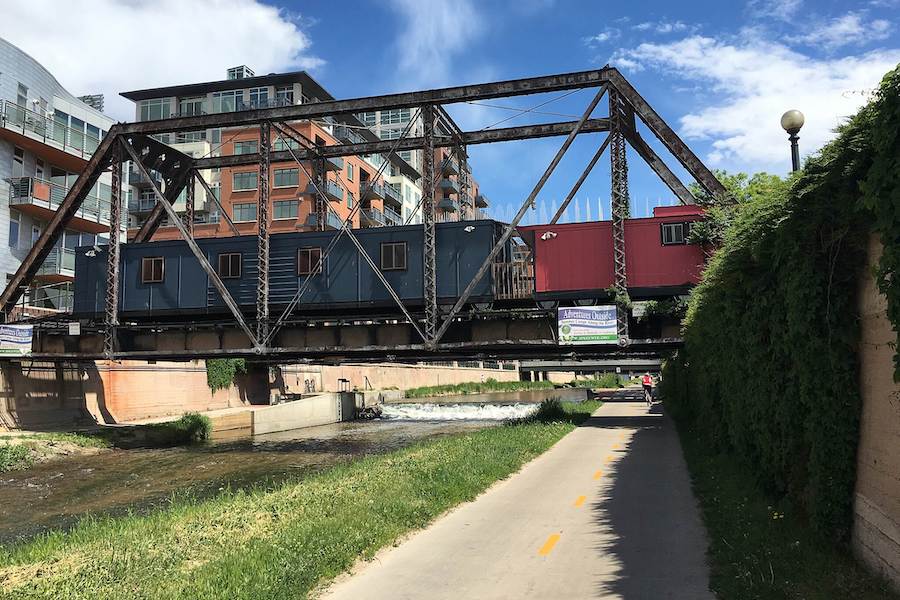
Transportation Alternatives (TA)
The nation’s largest dedicated federal funding source for trails and active transportation. New guidance instructs state departments of transportation (DOTs) on how to implement the TA funding in alignment with policy changes included in the Bipartisan Infrastructure Law.
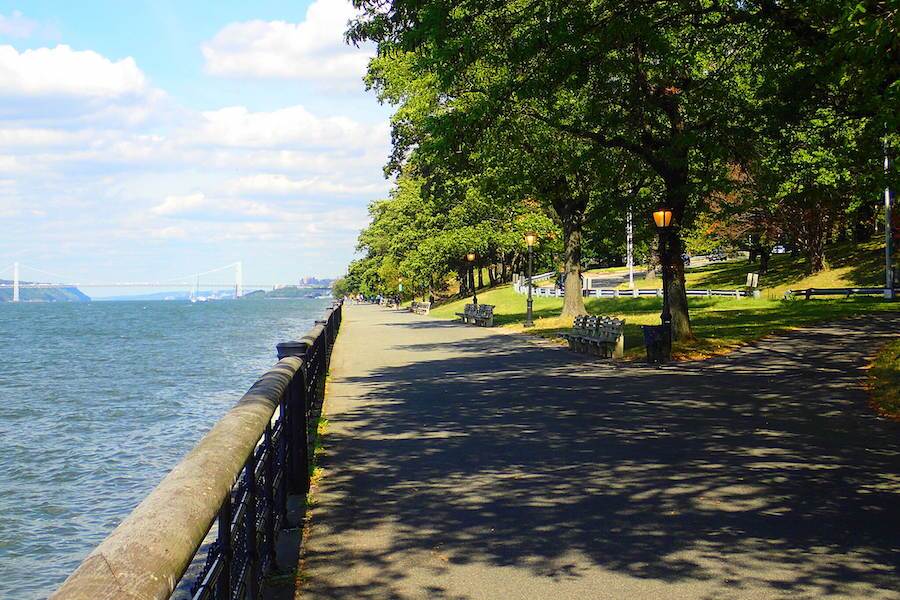
Recreational Trails Program (RTP)
Funded by gas taxes paid by off-road vehicles, the Recreational Trails Program (RTP) is dedicated to the construction, restoration and maintenance of nonmotorized and motorized recreational trails (paved and unpaved) and trail-related facilities.

Active Transportation Infrastructure Investment Program (ATIIP)
This new program, administered by the U.S. Department of Transportation (USDOT), establishes a competitive grant program focused on connecting active transportation infrastructure.
Multimodal Programs
These multimodal transportation programs are broader in scope and more competitive due to expanded eligibility but create opportunities for trail and active transportation projects.
Active Programs
- BUILD: Better Utilizing Investments to Leverage Development Grant Program
(Formerly RAISE Grants) - SS4A: Safe Streets and Roads for All Program
- CRP: Carbon Reduction Program
- CMAQ: Congestion Mitigation and Air Quality Improvement Program
- HSIP: Highway Safety Improvement Program
- NSFLTP: Nationally Significant Federal Lands and Tribal Projects
Under Review
Programs No Longer Accepting Applications
- RCP: Reconnecting Communities
- RCN: Reconnecting Communities and Neighborhoods Program
- NAE: Neighborhood Access and Equity
Other Eligible Funding Sources
Trails and active transportation projects are eligible for funding under these programs that are competitive against other local and state priorities.
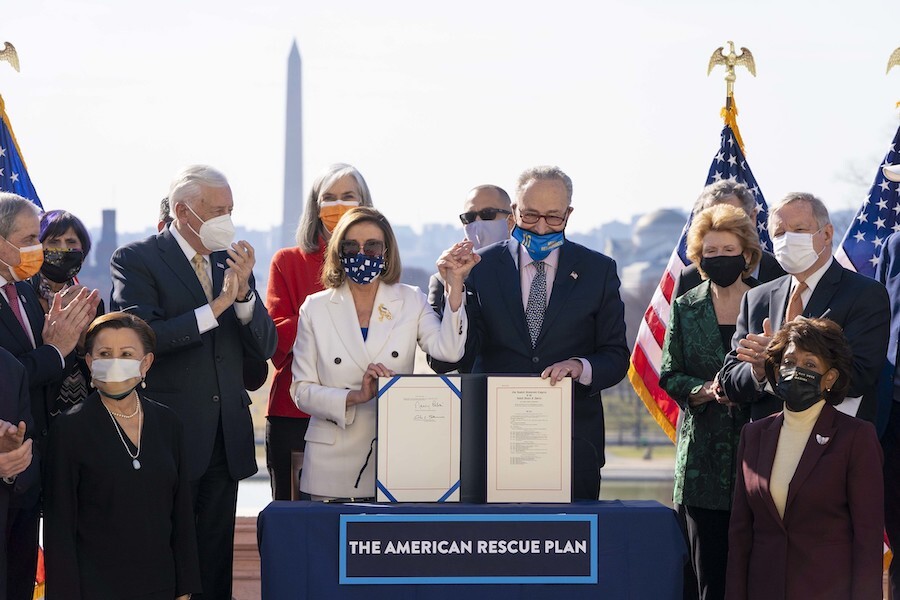
American Rescue Plan/Coronavirus State and Local Fiscal Recovery Funds
These funds are intended to provide relief and assistance to local, state and tribal governments in response to the COVID-19 pandemic.
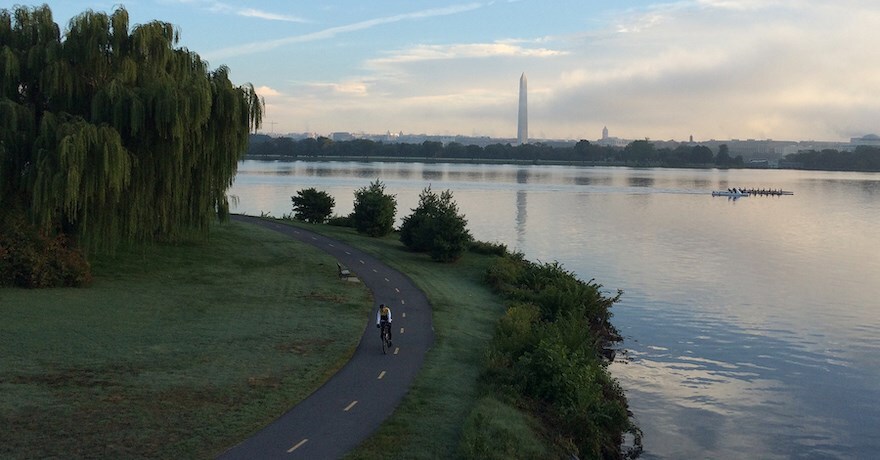
Earmarks
These funds support local priorities and are requested by members of Congress.
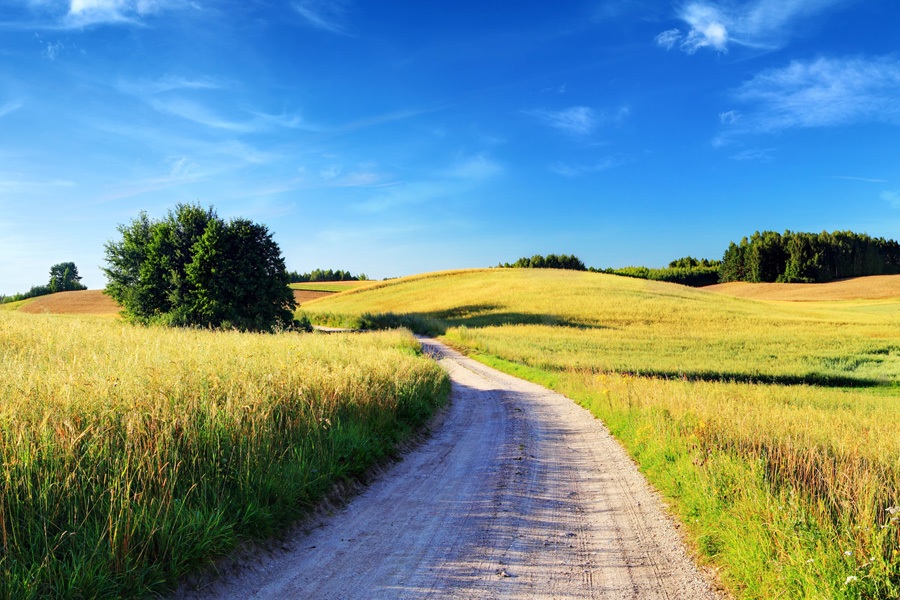
Rural Surface Transportation Grant (RSTG)
The Rural Surface Transportation Grant (RSTG) program supports projects that will improve and expand surface transportation infrastructure in rural areas.
Looking for RTC’s grant program? RTC’s Trail Grants program helps organizations and government agencies accelerate their trail network plans.
Resources
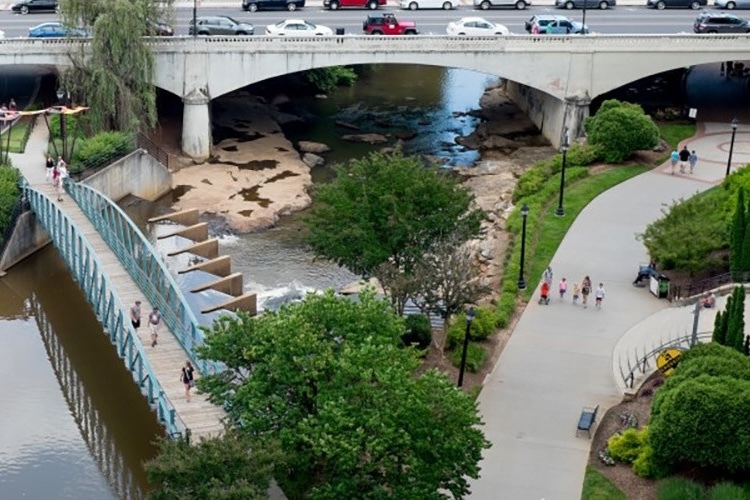
Resources for Local Leaders
Officials at the local, state, regional and federal levels often hold the keys to funding or policy changes to catalyze networks.
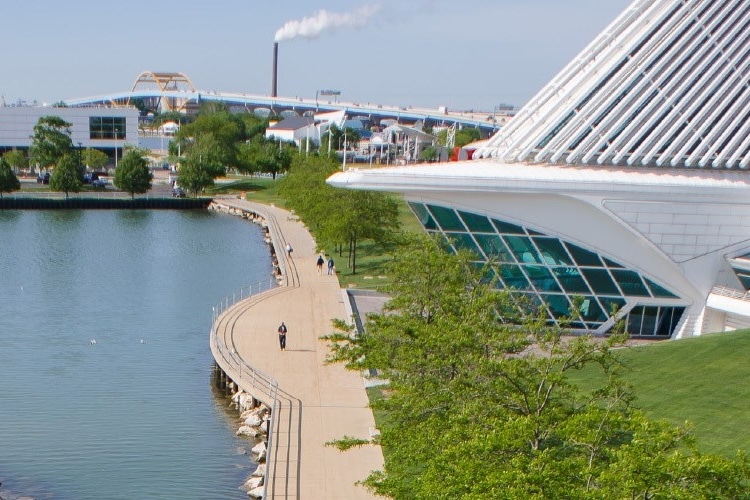
Transportation Alternatives Data Exchange
Rails to Trails Conservancy’s Transportation Alternatives Data Exchange (TrADE) is the nation’s go-to transportation funding data source for trails and active transportation, tracking TA spending for tens of thousands of projects.
The Bipartisan Infrastructure Law provides a variety of new and robust funding sources for trails and active transportation networks, as well as new eligibility and increased funding for existing programs.
Thriving Communities Program (TCP)
The TCP is designed to provide technical assistance and capacity building for communities that have experienced longstanding and systemic disinvestment and economic distress.
The USDOT has created a very detailed and comprehensive chart documenting all their pedestrian and bicycle funding sources. This document includes project types and links to funding sources.
Federal Transportation Funding FY 2023 Grant Checklist
The USDOT has created a comprehensive preparation checklist for potential applicants to prepare and apply for new funding passed under the Bipartisan Infrastructure Law.
Submitting For Competitive NOFOs: Best Practices
United for Infrastructure and the National League of Cities (NLC), alongside officials from USDOT, outline best practices and pitfalls for funding under the Bipartisan Infrastructure Law.
Federal Funding Stories
View More Blogs
Over 1,000 Organizations Come Together With a Clear Message for Congress: Walking and Biking Infrastructure Is Essential
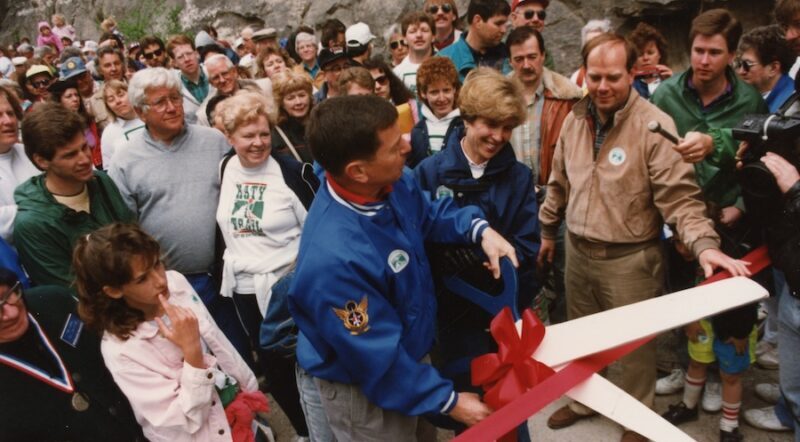
Reflections at 40: Moments That Moved the Dial for America’s Rail-Trails
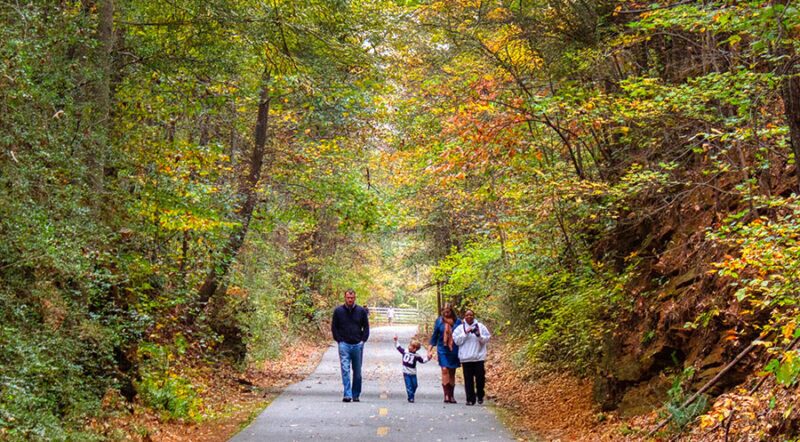
Southern Trailblazers: The Chief Ladiga and Silver Comet Trails
Media and Statements
- Big federal dollars for small state projects aim to get more cars off the roads | Stateline (10/13/23)
- FY 23 Raise Grants Illustrate Transformative Impact of Connected Trail, Walking and Biking Infrastructure in Rural, Suburban and Urban Communities Nationwide | RTC (6/28/23)
- New Federal Grants Elevate Trail and Active Transportation Systems as Essential Infrastructure in Addressing Traffic Fatalities | RTC (2/3/23)
- $45M for New Trails Grants Included in Federal Funding Deal | Route Fifty (12/21/22)
- Federal Funding Bill Contains $45M for New Active Transportation Program | Streetsblog USA (12/22/22)
- Putting Unprecedented Federal Funding for Trails and Active Transportation to Work | RTC (12/9/22)
- New Federal Funding for Safe Walking and Biking Routes Could Help Meet Booming Demand | RTC (9/12/22)
- RAISE Grants to Fund Complete Streets in Nearly Every State | Streetsblog USA (8/11/22)
- FY22 Raise Grants Underscore Urgency to Invest in Safe, Connected Active Transportation Infrastructure for All Communities | RTC (8/11/22)
- Biden Administration Reestablishes Important Tool to Cut Greenhouse Gas Emissions | RTC (7/7/22)
- New Guidance for Transportation Alternatives: Transformative Funding for Trails, Walking and Biking | RTC (4/7/22)
- USDOT’s Current RAISE Funding Opportunity Is Best Chance Yet to Secure Big Investments in Connected, Safe Walking and Biking Routes | (2/8/22)
- Advocates Hope ‘Inspired’ RAISE Grants are a Taste of Things To Come | Streetsblog USA (11/23/21)
- Analysis: Bipartisan Infrastructure Bill Passes With New Opportunities for Trails, Walking and Biking | RTC (11/6/21)
